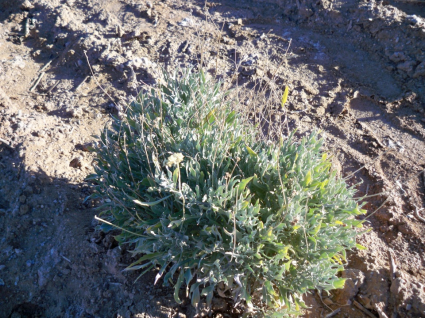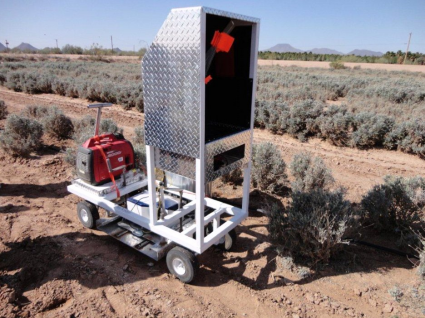
Guayule is a desert shrub which produces high quality, hypoallergenic latex that is quite valuable to the medical supply business and automotive tire manufacturers (Figure 1). This application was to assist PanAridus, LLC., a plant breeder to establish a production nursery in very short time with improved selections from large and geographically widespread plantings. The fields with the nursery plantings are located 20, 55 and 150 miles from the headquarters and laboratory. It can take up to 3 hours to get to the fields and since temperatures go above 38°C (100°F) by mid‐morning, an early start (in the field by 07:30 am) is essential. Samples were collected in early December. The initial models were developed on a set of 225 samples from two of the field locations with SECv for rubber at 0.76and R2 of 0.91, resin SECv of 0.81 and R2 of 0.76 and moisture SECv of 3.31 and R2 of 0.92. The reference values for resin were quite variable compared to the reference values for rubber. The SECv for Moisture was also quite variable and large for a typical moisture determination. The nature of the sample and the 150 mile drive to the laboratory contributed to this.

These calibrations have been validated and updated on two succeeding occasions. The additional samples were collected the following April and October. While the SEPc and R2 values have not significantly improved the validations have been acceptable as the data in Table 1 show for the set of 531 samples. The idea is to assay as many cultivars and introductions as possible multiple times during the growing season and eliminate the ones that are under performing. Because the Respect4π spectrometer is light weight, the instrument can go to the field and be moved from plant to plant. A generator and a long cord make this possible. To do this in the field in as reproducible manner as possible a sampling cart was developed expressly for the guayule plant measurements (Figure 2). To date some 15,000 spectra have been taken on some 5000 introductions. The cart helps move the equipment around in the field, yet the instrument is light enough to be carried from plant to plant. In this way the plant breeder has been able to make the needed selections and establish a production nursery which is providing material to major industries in quantities sufficient for pilot plant tests. This has been done in a period of five years instead of the usual fifteen expected for cultivar release. The Respect4π spectrometer performed well with no down time because of heat. The temperature environment (up to an ambient temperature of 46°C [115°F] and over 57°C [135°F] inside the instrument) has been far harder on the personnel and on laptops.
| Component | SEC | SECv |
|---|---|---|
| Rubber | 0.90 | 0.96 |
| Resin | 0.87 | 0.90 |
| Moisture | 3.22 | 3.53 |